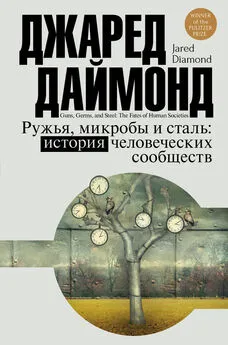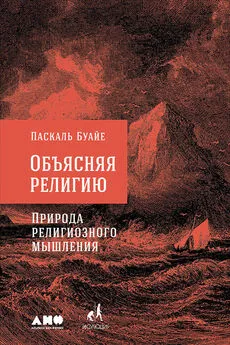Паскаль Буайе - Анатомия человеческих сообществ [Как сознание определяет наше бытие] [litres]
- Название:Анатомия человеческих сообществ [Как сознание определяет наше бытие] [litres]
- Автор:
- Жанр:
- Издательство:Литагент Альпина
- Год:2019
- Город:Москва
- ISBN:978-5-0013-9180-7
- Рейтинг:
- Избранное:Добавить в избранное
-
Отзывы:
-
Ваша оценка:
Паскаль Буайе - Анатомия человеческих сообществ [Как сознание определяет наше бытие] [litres] краткое содержание
Сопоставляя последние достижения эволюционной биологии, психологии, генетики, экономики и других научных дисциплин, автор представляет новый взгляд на устройство человеческих обществ. Буайе убедительно доказывает, насколько значимую роль когнитивные процессы играют в том, как люди выстраивают иерархии, семейные и гендерные нормы, как возникают межгрупповые конфликты и этнические стереотипы.
В фокусе его внимания находится принципиальный вопрос: как выработанные в ходе эволюции способности и предрасположенности человека объясняют то, как мы живем в обществе? И почему данные естественных наук критически важны для понимания исторических событий и социальных процессов?
Анатомия человеческих сообществ [Как сознание определяет наше бытие] [litres] - читать онлайн бесплатно ознакомительный отрывок
Интервал:
Закладка:
Alcorta, C. S., & Sosis, R. (2005). "Ritual, emotion, and sacred symbols: The evolution of religion as an adaptive complex." Human Nature , 16 (4), 323–359. doi: 10.1007 / s12110-005-1014-3
Al-Ghanim, K. A. (2009). "Violence against Women in Qatari Society ." Journal of Middle East Women's Studies , 5 (1), 80–93.
Alberts, S. C., Altmann, J., and Wilson, M. L. (1996). "Mate Guarding Constrains Foraging Activity of Male Baboons." Animal Behaviour , 51 (6), 1269–77. doi: http://dx.doi.org / 10.1006 / anbe.1996.0131
Alesina, A. (2013). "On the Origins of Gender Roles: Women and the Plough." Quarterly Journal of Economics , 128 (2), 469–530. doi: doi:10.1093 / qje / qjt005
Allport, G. W., & Postman, L. J. (1947). The psychology of rumor . New York: H. Holt and company.
Alvarez, K. J., and Levy, B. R. (2012). "Health Advantages of Ethnic Density for African American and Mexican American Elderly Individuals." American Journal of Public Health , 102 (12), 2240–42.
Amundsen, T., and Forsgren, E. (2001). "Male Mate Choice Selects for Female Coloration in a Fish." Proceedings of the National Academy of Sciences , 98 (23), 13155–60. doi: 10.1073 / pnas.211439298
Anderson, B. R. (1983). Imagined Communities: Reflections on the Origin and Spread of Nationalism. London: Verso.
Anderson, K. G., Kaplan, H. S., & Lancaster, J. (1999). "Paternal care by genetic fathers and stepfathers I: Reports from Albuquerque men". Evolution & Human Behavior , 20 (6), 405–431.
Anderson, K. G., Kaplan, H. S., Lam, D., & Lancaster, J. (1999). "Paternal care by genetic fathers and stepfathers II: Reports by Xhosa high school students". Evolution & Human Behavior, 20 (6), 433–451.
André, J.-B., and Baumard, N. (2011). "The Evolution of Fairness in a Biological Market." Evolution , 65 (5), 1447–56. doi: 10.1111 / j.1558–5646.2011.01232.x
Anton, S. C., Potts, R., and Aiello, L. C. (2014). "Human Evolution: Evolution of Early Homo: An Integrated Biological Perspective." Science , 345 (6192), 1236828. doi: 10.1126 / science.1236828
Appiah, K. A. (2011). The Honor Code: How Moral Revolutions Happen . New York: W. W. Norton.
Armstrong, G. (1998). Football hooligans: knowing the score . New York: Berg.
Arnason, J., Eisenstadt, S., and Wittrock, B. (2005). Axial Civilizations and World History. Leiden: Brill Academic.
Arnold, K. E., and Owens, I. P. F. (2002). "Extra-pair Paternity and Egg Dumping in Birds: Life History, Parental Care and the Risk of Retaliation." Proceedings of the Royal Society B, 269, 1263–69.
Asch, S. E. (1956). "Studies of Independence and Conformity: A Minority of One Against a Unanimous Majority." Psychological Monographs , 70 (9), 1–70.
Ash, T. G. (2014). The Magic Lantern: The Revolution of '89 Witnessed in Warsaw, Budapest, Berlin and Prague. London: Atlantic Books.
Asher, Y. M., and Nelson, D. G. K. (2008). "Was It Designed to Do That? Children's Focus on Intended Function in Their Conceptualization of Artifacts." Cognition , 106 (1), 474–83. doi: 10.1016 / j.cognition.2007.01.007
Astuti, R. (2001). "Are We All Natural Dualists? A Cognitive Developmental Approach." Journal of the Royal Anthropological Institute , 7 (3), 429–47.
Atran, S. A. (1990). Cognitive Foundations of Natural History: Towards an Anthropology of Science. Cambridge: Cambridge University Press.
Atran, S. A. (1995). "Classifying Nature across Cultures." In E. E. Smith, D. N. Osherson, et al. (eds.), Thinking: An Invitation to Cognitive Science , vol. 3 (2nd ed.)., pp. 131–74. Cambridge, Mass.: MIT Press.
Atran, S. A., and Medin, D. L. (eds.). (1999). Folkbiology . Cambridge, Mass.: MIT Press.
Aunger, R. (ed.). (2000). Darwinizing Culture: The Status of Memetics as a Science . Oxford: Oxford University Press.
Badahdah, A. M., and Tiemann, K. A. (2005). "Mate Selection Criteria among Muslims Living in America." Evolution and Human Behavior , 26 (5), 432–40. doi: 10.1016 / j.evolhumbehav.2004.12.005
Baillargeon, R., Kotovsky, L., and Needham, A. (1995). "The Acquisition of Physical Knowledge in Infancy." In D. Sperber, D. Premack, and A. James-Premack (eds.), Causal Cognition: A Multidisciplinary Debate , pp. 79–115. Oxford: Clarendon Press.
Baker, J. M., Liu, N., Cui, X., Vrticka, P., Saggar, M., Hosseini, S. M. H., and Reiss, A. L. (2016). "Sex Differences in Neural and Behavioral Signatures of Cooperation Revealed by Fnirs Hyperscanning." Scientific Reports , 6, 26492. doi: 10.1038 / srep26492
Barclay, P. (2016). "Partner Choice versus Punishment in Human Prisoner's Dilemmas." Evolution and Human Behavior , 37, 263–71. doi: 10.1016 / j.evolhumbehav.2015.12.004
Baron, J. (2001). "Confusion of Group Interest and Self-Interest in Parochial Cooperation on Behalf of a Group." Journal of Conflict Resolution , 45 (3), 283–96.
Baron-Cohen, S. (1991). "Precursors to a Theory of Mind: Understanding Attention in Others." In A. Whiten (Ed.), Natural Theories of Mind . Oxford: Blackwell.
Baron-Cohen, S. (1995). Mindblindness: An Essay on Autism and Theory of Mind . Cambridge, Mass.: MIT Press.
Barreiro, L. B., and Quintana-Murci, L. (2010). "From Evolutionary Genetics to Human Immunology: How Selection Shapes Host Defence Genes." Nature Review Genetics , 11 (1), 17–30. doi: http://www.nature.com / nrg / journal / v11 / n1 / suppinfo / nrg2698_S1.html
Barrett, H. C. (2005). "Adaptations to Predators and Prey." In D. M. Buss (ed.), The Handbook of Evolutionary Psychology . Hoboken, N. J.: John Wiley and Sons.
Barrett, H. C. (2014). The Shape of Thought: How Mental Adaptations Evolve . Oxford: Oxford University Press.
Barrett, H. C., Laurence, S., and Margolis, E. (2008). "Artifacts and Original Intent: A Cross-Cultural Perspective on the Design Stance." Journal of Cognition and Culture , 8 (1–2), 1–22. doi: 10.1163 / 156770908x289189
Barrett, J. L. (1998). "Cognitive Constraints on Hindu Concepts of the Divine." Journal for the Scientific Study of Religion , 37, 608–19.
Barrett, J. L. (2000). "Exploring the Natural Foundations of Religion." Trends in Cognitive Sciences , 4 (1), 29–34.
Barrett, J. L. (2001). "How Ordinary Cognition Informs Petitionary Prayer." Journal of Cognition and Culture , 1 (3), 259–69.
Barrett, J. L., and Keil, F. C. (1996). "Conceptualizing a Nonnatural Entity: Anthropomorphism in God Concepts." Cognitive Psychology , 31 (3), 219–47.
Barrett, J. L., and Nyhof, M. (2001). "Spreading Non-Natural Concepts: The Role of Intuitive Conceptual Structures in Memory and Transmission of Cultural Materials." Journal of Cognition and Culture , 1 (1), 69–100.
Barrett, J. L., Richert, R. A., and Driesenga, A. (2001). "God's Beliefs versus Mother's: The Development of Nonhuman Agent Concepts." Child Development , 72 (1), 50–65.
Baumard, N., André, J.-B., and Sperber, D. (2013). "A Mutualistic Approach to Morality: The Evolution of Fairness by Partner-Choice." Behavioral and Brain Sciences , 36 (1), 59–78.
Baumard, N., and Boyer, P. (2013). "Explaining Moral Religions." Trends in Cognitive Sciences , 17 (6), 272–80.
Baumard, N., and Lienard, P. (2011). "Second or Third Party Punishment? When Self-Interest Hides Behind Apparent Functional Interventions." Proceedings of the National Academy of Sciences of the United States of America , 108, 39.
Baumard, N., Mascaro, O., and Chevallier, C. (2012). "Preschoolers Are Able to Take Merit into Account When Distributing Goods." Developmental Psychology , 48 (2), 492–98. doi: 10.1037 / a0026598
Baumard, N., and Sheskin, M. (2015). "Partner Choice and the Evolution of a Contractualist Morality." In J. Decety, T. Wheatley, J. Decety, and T. Wheatley (eds.), The Moral Brain: A Multidisciplinary Perspective, pp. 35–48. Cambridge, Mass.: MIT Press.
Baumeister, R. F., Bratslavsky, E., Finkenauer, C., and Vohs, K. D. (2001). "Bad Is Stronger Than Good." Review of General Psychology , 5 (4), 323–70. doi: 10.1037 / 1089–2680.5.4.323
Baumeister, R. F., and Sommer, K. L. (1997). "What Do Men Want? Gender Differences and Two Spheres of Belongingness: Comment on Cross and Madson" (1997). Psychological Bulletin , 122 (1), 38–44.
Beard, M. (1996). "The Roman and the Foreign: The Cult of the 'Great Mother' in Imperial Rome." In N. Thomas and C. Humphrey (eds.), Shamanism, History and the State , pp. 164–88. Ann Arbor: University of Michigan Press.
Bécares, L., Shaw, R., Nazroo, J., Stafford, M., Albor, C., Atkin, K., Kiernan, K., Wilkinson, R., Pickett, K. (2012). "Ethnic Density Effects on Physical Morbidity, Mortality, and Health Behaviors: A Systematic Review of the Literature." American Journal of Public Health , 102 (12), e33 – e66.
Becker, G. S. (1973). "A Theory of Marriage: Part I." Journal of Political Economy , 81 (4), 813–46.
Becker, G. S. (1974). "A Theory of Marriage." In T. W. Schultz (ed.), Economics of the Family: Marriage, Children, and Human Capital , pp. 299–351. Chicago: University of Chicago Press.
Becker, G. S. (1981). A Treatise on the Family . Cambridge, Mass.: Harvard University Press.
Belsky, J., Steinberg, L., and Draper, P. (1991). "Childhood Experience, Interpersonal Development, and Reproductive Strategy: An Evolutionary Theory of Socialization." Child Development , 62 (4), 647–70. doi: 10.2307 / 1131166
Bering, J. M. (2006). "The Folk-Psychology of Souls." Behavioral and Brain Sciences , 29 (5), 453–62.
Bernhardt, K., Huang, P. C., and Allee, M. A. (1994). Civil Law in Qing and Republican China . Stanford, Calif.: Stanford University Press.
Betzig, L. (1986). Despotism and Differential Reproduction: A Darwinian View of History. New York: Aldine.
Bicchieri, C. (2006). The Grammar of Society: The Nature and Dynamics of Social Norms . Cambridge: Cambridge University Press.
Billig, M., and Tajfel, H. (1973). "Social Categorization and Similarity in Intergroup Behavior." European Journal of Social Psychology , 3, 27–52.
Binmore, K. (2005). Natural Justice . New York: Oxford University Press.
Blair, R. J. R. (2007). The Amygdala and Ventromedial Prefrontal Cortex in Morality and Psychopathy." Trends in Cognitive Sciences , 11 (9), 387–92.
Blair, R. J. R., Sellars, C., Strickland, I., Clark, F., Williams, A., Smith, M., and Jones, L. (1995). "Emotion Attributions in the Psychopath." Personality and Individual Differences , 19 (4), 431–37.
Blanchard, D. C., Griebel, G., and Blanchard, R. J. (2003). "Conditioning and Residual Emotionality Effects of Predator Stimuli: Some Reflections on Stress and Emotion." Progress in Neuro-Psychopharmacology and Biological Psychiatry , 27 (8), 1177–85.
Blascovich, J., Mendes, W. B., Hunter, S. B., Lickel, B., and Kowai-Bell, N. (2001). "Perceiver Threat in Social Interactions with Stigmatized Others." Journal of Personality and Social Psychology , 80 (2), 253–67.
Bliege Bird, R. L., and Bird, D. W. (1997). "Delayed Reciprocity and Tolerated Theft: The Behavioral Ecology of Food-Sharing Strategies." Current Anthropology , 38 (1), 49–78.
Bloch, E. (1985 [1921]). Thomas Münzer als Theologe der Revolution . Berlin: Suhrkamp.
Читать дальшеИнтервал:
Закладка:
![Обложка книги Паскаль Буайе - Анатомия человеческих сообществ [Как сознание определяет наше бытие] [litres]](/books/1075472/paskal-buaje-anatomiya-chelovecheskih-soobchestv-kak.webp)


![Илья Кнабенгоф - Анатомия шоу-бизнеса [Как на самом деле устроена индустрия] [litres]](/books/1059140/ilya-knabengof-anatomiya-shou.webp)
![Джесси Шелл - Геймдизайн [Как сознание определяет наше бытие] [litres]](/books/1075468/dzhessi-shell-gejmdizajn-kak-soznanie-opredelyaet-na.webp)
![Джей Эшер - Наше будущее [litres]](/books/1091325/dzhej-esher-nashe-buduchee-litres.webp)


![Олег Панков - Как очки убивают наше зрение [litres]](/books/1145718/oleg-pankov-kak-ochki-ubivayut-nashe-zrenie-litres.webp)

